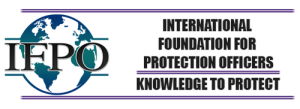Introduction to Complex Adaptive Systems and Risk Analysis
By Erik Daniel Erikson, CPO, CPOI, CSSM
This article presents various concepts for security managers and directors to get a brief introduction to complexity theory and its relevance to risk analysis.
The first part of this article is to introduce the concept of complexity in various environments, and the second part presents how it relates to risk analysis. The structures and tools that we have developed in the area of risk
identification and risk management are fairly well developed. Most of us in the security industry understand that risk is fundamental to our profession. How we assess risks, identify risks and analyze risks are all already part of standardized processes.
One of those frameworks is known as the ISO 31000, “Risk Management – Principles and Guidelines” standard. How we treat or manage risks as they are applied to business operations is another known standard, ISO
22301, “Business Continuity Management Systems."
The application of the two standards together with the consideration of “opportunities” is considered Enterprise Risk Mangement (ERM). Consensus of definition defines ERM as the “methods and processes used by organizations to manage risks and seize opportunities related to the achievement of their objectives.”
However, one consideration that is not well known for security directors and managers is when and where do we apply those tools. What types of risk assessment and identification are scientifically valid in terms of the context to which they are applied? In what operating environments do they work or do not work well? Are we sufficiently informed as to which environment we are currently operating in? To answer these questions we must understand the operating environment. Is it an “ordered” environment or an “nonordered” environment?
________________________________________________________________________________
Get certified and take your security career to the next level!
The International Foundation for Protection Officers (IFPO) is dedicated to providing meaningful and cost effective security training for security guards and protection officers.
We believe that education is a necessary and essential part of professional security training and the security officer’s background. IFPO serves individuals, security companies, and organizations that have their own private security staff. Our students and members benefit from the recognition and standing that the prestigious IFPO certification conveys.
LIKE and FOLLOW the IFPO on Facebook!
International Foundation for Protection Officers Mission Statement
Mission Statement Part I.
The International Foundation for Protection Officers provides professional learning opportunities for security practitioners, to impart the knowledge, skills, and competencies required to maximize job performance and enhance career potential.
Purpose: to make a positive difference in the quality of the participant’s job performance and elevate the professional status of students who partake of our learning opportunities.
Business: to supply committed security practitioners with a quality education to help achieve their highest potential and provide recognized accreditation for successful completion of educational goals.
Values: commitment, integrity, responsibility, and standards of excellence, provide the platform that supports our journey as we pursue our mission.
Vision Statement
Commitment to Excellence: To be the recognized center of excellence and primary provider of education and training products and services to the security industry.
Mission Statement Part II.
“The International Foundation for Protection Officers is committed to the support and professional development of protection officers and supervisors. Through advocacy, promoting training standards, and providing accessible training, education and certification opportunities, we seek to enhance their professional standing as well as increase and diversify the value of the vital services they provide.”


